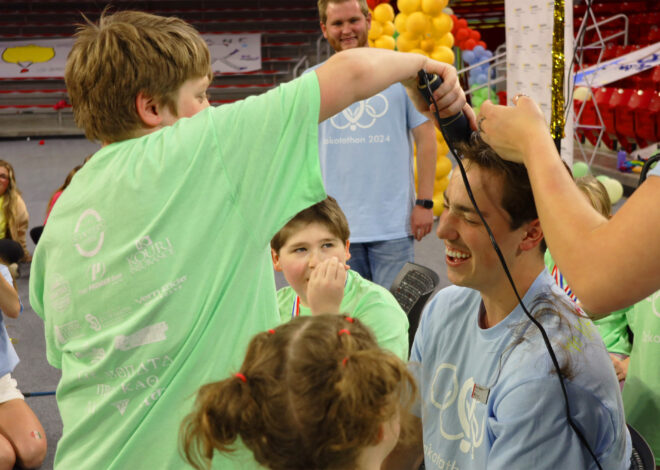Binge drinking doesn’t see increase
Story by Christian Hansen and Katrina Vyborny
Alcohol-related incidents killed more people aged 17-34 than any other cause last year.
Alcohol is seen as an especially large problem on college campuses across the U.S. At the University of South Dakota, some see drinking as being more pervasive than on some other college campuses, especially during Dakota Days. But others, like junior Lizzie Medema, don’t think it’s that much worse.
“I don’t think drinking is much worse during D-Days, staff just pay more attention,” she said.
While students conflict on how much alcohol makes it to campus, the end results are evident. About 80,000 deaths each year are caused by alcohol, and the substance is responsible for more than 2.3 million years of potential life lost, according to the Center for Disease Control and Prevention.
First-year student Taylor Long Crow said before he came to USD, he thought it was a big party school.
“USD has a reputation where I’m from, that everyone drinks there every day,” Long Crow said. “Coming here, I noticed that it isn’t nearly as popular as I expected.”Other students and staff also say drinking isn’t much more of a problem during D-Days, but that a legend that has been established around the week.
University officials, however, say USD doesn’t have more of a problem with drinking than other campuses. Pete Jensen, director of University Police, said he wants to assuage worries that drinking is getting worse on campus.
“When I reviewed the preliminary numbers from D-Days, it appears they were almost identical to the previous year,” he said. “Our alcohol referrals to Student Rights and Responsibilities were up, which we attribute to working more closely with hall staff.”
Phil Covington, associate dean of Student Life, said drinking is just a problem many colleges experience.
“Drinking is an issue that extends far beyond the university campus,” Covington said. “It’s a culture issue, the prevalence of alcohol.”
Kimberly Grieve, dean of students, said she didn’t think drinking is any worse at USD than at other campuses.
“Binge drinking at USD’s campus is very similar to other campuses across the nation,” Grieve said. “It is a problem, and I think that the conversation (about alcohol use and prevention) needs to continue.”
While administration said the problem isn’t any worse than at other institutions, they are making efforts to make students aware of the adverse effects drinking, and binge drinking especially, can have on students’ lives.
“The counseling center does a lot of preventative type programs around alcohol” Grieve said. “As a dean of students, I have talked to many different groups this school year already about the problems binge drinking and how it’s so important to find alternatives. Just having the conversation with them, and talking with them, helps them to realize that, you know, this isn’t really the way to establish relationships, or the way I want to conduct myself.”
Grieve and Covington talked about the effects drinking has on a student’s future, both academically and career-wise.
“Many students who binge drink don’t go to class as often,” Grieve said. “They’re not feeling well the next day, it hurts their motivation. It effects your body in so many different ways that it just snowballs.”
Jeffrey Simons, a professor of psychology, specializes in substance abuse. He talked about the adverse effects that excessive alcohol has on a habits and academics.
“Some of the effect is due to effects on sleep, and some is likely due to effects on the cognitive process,” he said.
Covington also said drinking negatively affects students’ career.
“There is a very clear correlation (between drinking and bad academic performance),” he said. “When problem drinkers, not necessarily alcoholics, drink to excess it impacts their sleeping habits and health. It’s just a logical progression.”
Both Covington and Grieve said on top of health repercussions, write ups and arrests or citations adversely affect students who are trying to get a job or being accepted into graduate school.
“With the jobs market being as competitive as it is, a citation or arrest for drinking related issues could be the difference between having a job or not, or getting into a graduate program,” Grieve said.
Grieve said she encourages people, especially underage students, not to drink. She also encourages of-age students to be responsible. “With the job market being so competitive (a citation or arrest) could be the thing that will not allow you to get a job or get into that graduate program you want to be in.”


